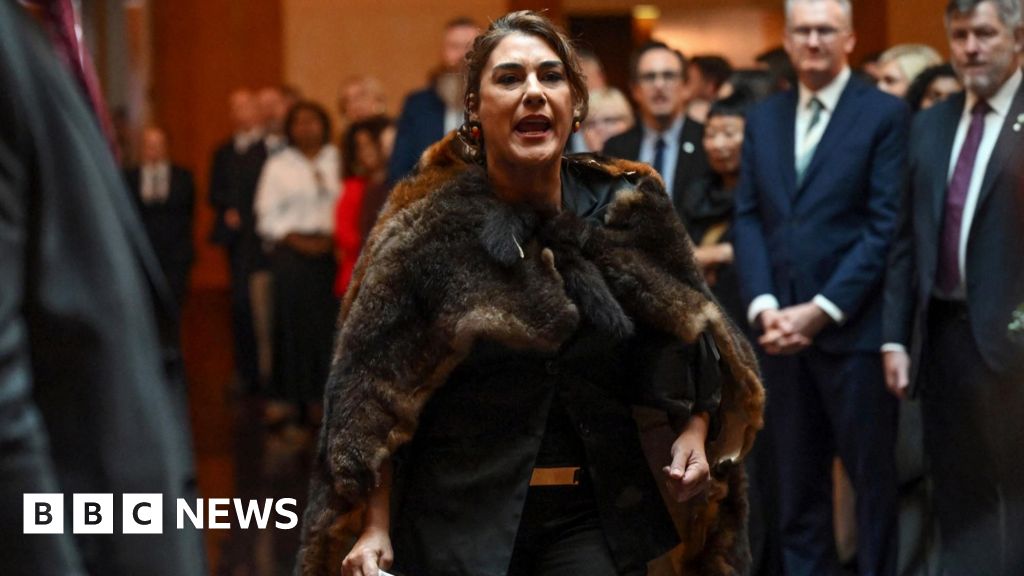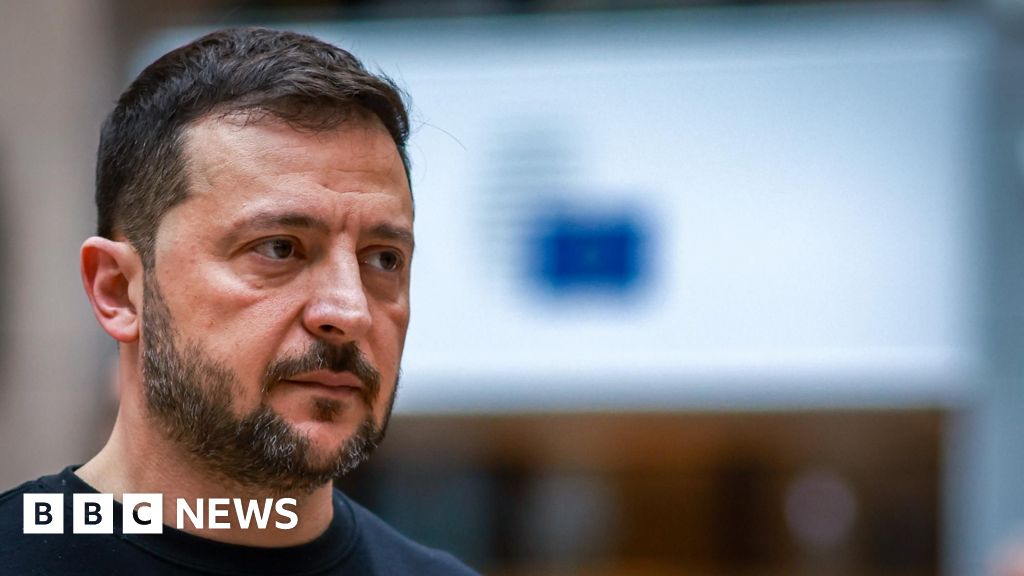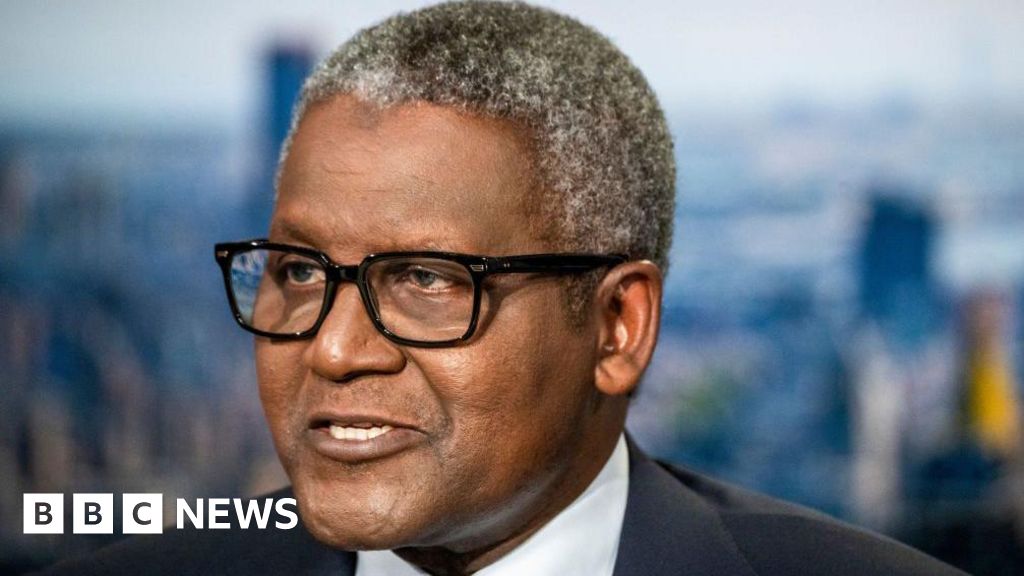ARTICLE AD BOX
Image source, Barkha Dutt
Image caption,'Speedy' Dutt (left) with his daughters Bahar (middle) and Barkha (right)
Last summer hundreds of thousands of people died when an unprepared India was hit by a catastrophic second wave of Covid-19 and its health care system buckled. Journalist Barkha Dutt, who was chronicling the pandemic, lost her father to the virus in April 2021. Here she writes on her loss, and other daughters who suffered the same fate.
It's been a year since I have been able to hear music; a year since the death of my father to Covid at the peak of India's insatiable second wave.
So, a few days ago, the faint strains of a familiar tune felt like a jolt to the system.
Guantanamera Guajira Guantanamera…
My hand trembled as I heard the chords of the Cuban folk song that has been variously sung to invoke romance, patriotism, protest and change.
For my sister and I, this was Papa's Song that marked the milestones of our lives, played out on scratchy cassettes when we were kids, remastered for an eight-track system in our teens, graduating to CDs when we went to college and finally heard on loop at his desktop. Here, he was surrounded by grandchildren, dogs, meccano sets, and odd looking wires - bit parts of kettles, speakers, coffee makers - machines he was repairing for friends, sometimes opened up for the sheer joy of tinkering with them.
Image source, BARKHA DUTT
Image caption,'Speedy' Dutt loved building meccano sets
SP Dutt - 'Speedy' to friends and family - was one of the hundreds of thousands of Indians taken by a virus that pummelled our health system into submission. In the wasteland of a nation's grief, April was indeed the cruellest month as oxygen ran out, hospitals shut their gates to patients who died on the streets, vaccines were delayed and elections were mockingly on schedule.
We could only turn to each other, daughters desperate to save fathers, as institutions collapsed.
In Mumbai, Samridhi Saxena, reached out in the hope that I could help her father with an oxygen cylinder. He was struggling with a rare neurodegenerative disease.
From Patna, Manisha called to say her 53-year-old father may die because the hospital where he was admitted no longer had oxygen.
In Bangalore, 21-year-old Bharini asked me: "How strong am I expected to be?" She lost her biological parents in an accident, now her adoptive mother had died from Covid.
Journalist Stutee Ghosh and I mirrored each other's gnawing guilt - that somehow we were letting down our fathers; but also the guilt of knowing that even in our worst moment, we were better off than hundreds of thousands of other Indians, just because that our dads were in hospital and not stranded on the road.
Her father, like mine, didn't make it. And over the weeks, her grief mutated into rage at "the indignity in death for so many who are dying and not even being counted by the government".
Image source, EPA
Image caption,Healthcare facilities in India collapsed during the brutal second wave
We were bereft. As daughters. And as citizens.
Before my father died, we always valorised our mother, Prabha Dutt, who we lost when I was 13 years old to a brain haemorrhage. As India's first woman war correspondent, who died at 40, she was the stuff of legend.
It was easy to take the person in front of us - our dad - for granted.
It took losing him to Covid for me to realise he was the epicentre of my existence.
In April 2021, when the news first came that my father had Covid, I was at a crematorium in Mumbai, fighting back tears, as an elderly man in a wheelchair waved goodbye to his wife.
Covid was already my whole life. I travelled more than 30,000km (18,641 miles) by road across India, through the first wave and then again thousands of kilometres by both air and road through the more lethal second spell.
I'd been the chronicler of death and despair; but now the news had come home.
I am forever haunted by my decision to take my dad to hospital in a private ambulance.
Image source, Reuters
Image caption,India's mammoth vaccination effort was struggling when it was hit by the second wave
It was a ramshackle van with no paramedics, no stretchers and a crew of one - the driver. Eventually the single oxygen cylinder placed under the hard vinyl bench on which my father now lay like a helpless child, did not work.
By the time we reached the hospital - slowed down, like scores of other ambulances, by random police checkpoints - his condition had worsened, the cylinder had failed to administer high flow oxygen.
When we took his body from the hospital to the cremation ground, the irony was staggering. Now that he was dead, we'd managed to organise a professional ambulance. The stretcher in the hearse was shiny brown, the leather new, the height of the seat adjustable. And there was my father, in a beige zip bag, as if he were a frozen vegetable.
Today we are keen to forget, desperate to block out triggers of sorrow.
But tying up an open gash doesn't heal it.
The collective memories of a wounded nation have long shadows. I still cannot bring myself to step into my father's room, where over his bed three circular tracks were built from the roof for his collection of self-made trains.
At heart, my father was a man of science. He was the brilliant student who made the first toy rocket at school. As a young adult he built a vending machine for Cadbury chocolates. Later, he made shoe shine machines eponymously named 'Speedshine'.
Science, he liked to say, taught us that "what cannot be cured, must be endured".
When he tested positive, he repeated his favourite phrase.
Had India rolled out its vaccines sooner, things might well have been different. The government's first order for vaccines was placed on 10 January 2021 for a little over 10 million doses, not even enough to administer the first dose to Delhi's adult population.
My father, like hundreds of thousands of Indians, should not have had to endure what he did.
My father did not have to die.
Barkha Dutt is an award-winning TV journalist, anchor and author, most recently, of Humans of Covid: To Hell and Back
Scenes outside a hospital in Delhi, where people are dying without getting the treatment they need

 2 years ago
85
2 years ago
85








 English (US)
English (US)